Patrick Swayze!
1952-2009
Ghost
Dirty Dancing
Red Dawn
R. I. P.
A blog for lovers of the printed word (novels, short stories, poems--the Ing so to speak), popular film, politics, and casinos (the Bling).
Tuesday, September 15, 2009
Sunday, September 13, 2009
Attention Black People! Skin Whitener for Sale!
Among Americans, I am considered black.
Okay . . .
Heck, among black people, I am considered black. I am a very dark skinned black man. I am not honey skinned or brown skinned or red skinned or tanned--I am black.
The interesting thing is that I did not know how dark I was until a few years ago I pondered a photograph I had taken with some of my dark skinned black friends. I had always considered them very dark, but when I looked at that photo I made the decision to stop using the "very" when describing them. Among these dark hued brethren, I was the darkest (and the cutest, but that's another story).
That was so weird. When I looked at photographs from my childhood, I was less black. I was more brown. Now I am black.
Then I started looking around to see if I could find black people who were darker even than I was. And there they were. They weren't too hard to find. I would stand beside them and glance furtively, comparing skin tones. I would make excuses to take photographs with them.
Cool, I thought. Cool. There were people even darker than I was.
And my student from Nigeria--I was fascinated by her skin. It was so black it seemed to swallow light and ooze it back out as a sort of sheen or shine. She made even dark skinned people like me seem light.
I recall a conversation I had with this student after class because of a self-deprecating comment she had made during class discussion. Like I said, she was very dark, much darker than I (though much cuter and much smarter). "But Professor Allen," she said, "I'm no different from any other black person. Sometimes the blackness is a burden. Sometimes I just wish I were white. I think we all feel that way sometimes. Right?"
"No. Not all of us," I told her. "Not me. Not as far as I can recall. I've never wished I were white. Maybe I wished it when I was a kid and I cannot remember it, but I even doubt that. My head is just not made that way."
"You've never wished you were white? Come on, professor," she said. "Be honest. You're just trying to act all superior."
"No. I am being honest. I've wished for money. I've wished for fame. I wished to be a best selling novelist. I once even wished to be taller. I wished to be Spider-man when I was a kid, but not because Peter Parker was white, but because I wanted to spin webs, climb walls, and be strong enough to beat up bad guys. I once wished to go out with the prettiest girl in my class, who was white. But again, I did not wish myself white. I saw us together as black and white--in fact, I saw her as pleading with her parents to support her brave love for the amazing black guy that she had fallen in love with. It never happened, of course. I was too shy to even talk to her."
"So you've never wished to be white."
"No. Never," I said. "But I have wished that I could live in a world where there weren't extra hurdles and obstacles because I was black."
She locked onto me with her gaze. "Yes, professor, all black people wish for that, but let me put it to you another way. Do you wish you were black?"
Her question puzzled me. I shrugged. "I am black. I do not have to wish."
"Okay," she said. "When you're about to have a child, do you wish it were black?"
I sensed a trap, but could not see where it was being laid. I answered with joviality, "I certainly do not wish it were white. Hahaha, that would mean my wife had been spending quality time with male company other than myself."
Her expression remained serious. "Do you wish it were as black as you, professor?"
"Uh." The trap. "Uh," I said, searching for words or more joviality.
"Don't equivocate," she said. "Do you wish the child were as black as you, or do you wish, silently, somewhere deep down inside that it were lighter?"
"It does not matter. I do not wish a complexion upon my children. I love my children regardless of their complexions."
"But does the world? Does our country?" she said. "When you have a child, you might wish it were many things that we as a culture find attractive and/or desirable. You might wish he were tall, that she were beautiful, that he were strong, that they were smart, that he were athletic, that she were clever and independent. And if he/she is born with very dark skin, you accept it--but you do not wish it."
"But--"
"No more than you would wish your child were born with a defect. You would love the child regardless of the defect, but you certainly would not wish it upon him/her. I can just see you now, professor, sitting in the waiting room excitedly speculating 'Ooooh, wouldn't it be nice if she gave birth to a sweet little down syndrome boy.' "
I cried foul. "Young lady, you are quite mixing up the issues here--"
But she stuck to her guns. "It's the same way with homosexuality. We are all liberal-minded folk who accept people of all sexual proclivities and persuasions, but who among us wishes to give birth to a little lesbian? Oooo, wouldn't it be nice to bring home a bouncing baby queer boy?" she laughed.
I forgot to mention that on the first night of class she made it clear, to the chagrin of many of her classmates, that she was a very out lesbian.
I countered, "While I do not wish for a dark child, I certainly do not wish that the child be NOT dark. I think dark skin is beautiful as are all of the other possible complexions. In fact, of late even the world has come to see what I have known all along: that very dark skin is beautiful. Just look at the number of famous celebrity beauties and fashion models with very dark skin. Wesley Snipes, a very dark man, is considered quite handsome. And if we take a cynical look at even our history of slavery, we have to admit that the incidence of very white skinned men visiting their sexual passion on what must have been very dark women (since they had come straight from Africa) is further evidence that in the eyes of sexualized males (even white ones) black has always been beautiful, or at least not ugly enough to repulse as is sometimes claimed."
She shook her head sadly. "Blah, blah, blah. And Michael Jackson was rich and handsome and black, and he did something, who knows what, to make his skin lighter. All right, professor, now you're rationalizing, which tells me that you're not going to drop your facade, even though you know that I am right. So I give up."
"It is no facade. Black is beautiful. As beautiful as white. As beautiful as brown. As beautiful as tan."
She said, "I will leave you with one more question. You don't have to answer it. Just promise me you'll go home and think about it."
"What's the question?" I said.
"If you could pull a Michael Jackson," she said, "would you do it?"
"What?"
"If through a medical treatment (or some kind of magical elixir, or maybe even a skin creme) black people--dark people like you and me--could become lighter or even white, would you use it?"
That was the question. And then she left.
But the key for me has always been this: I like Preston. You cannot get me to start disliking Preston. He's got black skin, so then I like black skin. I also like people who like Preston. I like them a whole lot. What I don't like are people who don't like Preston. I don't like them at all.
But I had to admit it was a very good question.
A very troubling question.
____________________________________________________
And then along came this article I found on AOL.
OMG!!!
There are a whole lot of dark people who want to be light, and now I see why!
If you are light, you will get the girl of your dreams. LOL.
_______________________________
NEW DELHI, India (Sept. 10 ) -- Cosmetic advertisements in Asia are targeting men with blunt campaigns aimed at skin color that one lawmaker labels racist.
In one TV commercial, two men, one with dark skin, the other with light skin; stand on a balcony overlooking a neighborhood. The dark skin guy turns to his friend and says in Hindi, "I am unlucky because of my face." His light skin friend replies, "Not because of your face, because of the color of your face."
Suddenly the light skin guy throws his friend a cream. It's a whitening cream.
It is one of several television commercials aimed at men in Pakistan and India. In the end the darker skin actor is shown several shades lighter and he gets the girl he was after. Most of the ads end up that way.
The commercials are sending a not-so-subtle message to men in Asia: Get whiter skin, and you'll get the girl and the job of your dreams. Or at the very least you'll be noticed.
"We always have a complex towards a white skin, towards foreign skin or foreign hair," Jawed Habib says.
Habib should know. He owns a chain of 140 salons located in India and across the world. "We Indian people, we Asian people are more darker, so we want to look more fair."
Skin whiteners were once targeted only to women. Now the products are a hot commodity for men.
Many of the brands being advertised for men are well known around the world -- including Nivea and Garnier.
A marketing study found sales for skin whitening creams have jumped more than 100 percent in rural India and sales for male grooming products are increasing 20 percent annually.
Hindustan Unilever, one of the largest consumer products companies in India, noted in recent annual reports that "skin lightening continues to be a major area of emphasis" for its skin care division.
And Emami Ltd., the company which produces "Fair and Handsome," sent CNN an email saying: "Fair and Handsome is a market leader with almost 70 percent market share in India and doing extremely well in Gulf countries and the Middle East as well."
But in a country where most people have brown skin, the message being sent to men and women has some people outraged.
"Basically if you need a job you have to have white skin. If you want a good partner, a companion you need white skin and you always seem to get it once you've used the fairness cream. Basically I think it's completely racist and highly objectionable," says Brinda Karat.
Karat is a member of India's Parliament who has made formal complaints about the advertisements to Indian authorities. She says the ads are simply playing on a social stigma that already exists in India.
To get a good look at the pervasiveness of the stigma attached to dark skin in India all you have to do is look at the want ads for brides and grooms in the newspaper.
Arranged marriages are still commonplace in India, and the advertisements for brides and grooms often list physical attributes of the person being sought. Many of the ads list "fair" as one of the wanted physical characteristics.
"I mean at a time when we're talking about talents and skills, and the need for the accessibility to that to develop our potential; what does it do to dark persons' self esteem?" Karat says. "I think it should be stopped."
But the product makers say they are simply giving the public what it wants, and a few Indian consumers agreed.
Deepak Rajput said: "Everybody wants to look handsome and beautiful, why not me?"
Salon owner Jawed Habib says he will accommodate if that is what the customer wants, but he doesn't push the skin whitening products.
"Why do you even think about it?" He says: "Let's accept the way we are."
© 2009 Cable News Network. Turner Broadcasting System, Inc. All Rights Reserved.
2009-09-10 10:42:16
Okay . . .
Heck, among black people, I am considered black. I am a very dark skinned black man. I am not honey skinned or brown skinned or red skinned or tanned--I am black.
The interesting thing is that I did not know how dark I was until a few years ago I pondered a photograph I had taken with some of my dark skinned black friends. I had always considered them very dark, but when I looked at that photo I made the decision to stop using the "very" when describing them. Among these dark hued brethren, I was the darkest (and the cutest, but that's another story).
That was so weird. When I looked at photographs from my childhood, I was less black. I was more brown. Now I am black.
Then I started looking around to see if I could find black people who were darker even than I was. And there they were. They weren't too hard to find. I would stand beside them and glance furtively, comparing skin tones. I would make excuses to take photographs with them.
Cool, I thought. Cool. There were people even darker than I was.
And my student from Nigeria--I was fascinated by her skin. It was so black it seemed to swallow light and ooze it back out as a sort of sheen or shine. She made even dark skinned people like me seem light.
I recall a conversation I had with this student after class because of a self-deprecating comment she had made during class discussion. Like I said, she was very dark, much darker than I (though much cuter and much smarter). "But Professor Allen," she said, "I'm no different from any other black person. Sometimes the blackness is a burden. Sometimes I just wish I were white. I think we all feel that way sometimes. Right?"
"No. Not all of us," I told her. "Not me. Not as far as I can recall. I've never wished I were white. Maybe I wished it when I was a kid and I cannot remember it, but I even doubt that. My head is just not made that way."
"You've never wished you were white? Come on, professor," she said. "Be honest. You're just trying to act all superior."
"No. I am being honest. I've wished for money. I've wished for fame. I wished to be a best selling novelist. I once even wished to be taller. I wished to be Spider-man when I was a kid, but not because Peter Parker was white, but because I wanted to spin webs, climb walls, and be strong enough to beat up bad guys. I once wished to go out with the prettiest girl in my class, who was white. But again, I did not wish myself white. I saw us together as black and white--in fact, I saw her as pleading with her parents to support her brave love for the amazing black guy that she had fallen in love with. It never happened, of course. I was too shy to even talk to her."
"So you've never wished to be white."
"No. Never," I said. "But I have wished that I could live in a world where there weren't extra hurdles and obstacles because I was black."
She locked onto me with her gaze. "Yes, professor, all black people wish for that, but let me put it to you another way. Do you wish you were black?"
Her question puzzled me. I shrugged. "I am black. I do not have to wish."
"Okay," she said. "When you're about to have a child, do you wish it were black?"
I sensed a trap, but could not see where it was being laid. I answered with joviality, "I certainly do not wish it were white. Hahaha, that would mean my wife had been spending quality time with male company other than myself."
Her expression remained serious. "Do you wish it were as black as you, professor?"
"Uh." The trap. "Uh," I said, searching for words or more joviality.
"Don't equivocate," she said. "Do you wish the child were as black as you, or do you wish, silently, somewhere deep down inside that it were lighter?"
"It does not matter. I do not wish a complexion upon my children. I love my children regardless of their complexions."
"But does the world? Does our country?" she said. "When you have a child, you might wish it were many things that we as a culture find attractive and/or desirable. You might wish he were tall, that she were beautiful, that he were strong, that they were smart, that he were athletic, that she were clever and independent. And if he/she is born with very dark skin, you accept it--but you do not wish it."
"But--"
"No more than you would wish your child were born with a defect. You would love the child regardless of the defect, but you certainly would not wish it upon him/her. I can just see you now, professor, sitting in the waiting room excitedly speculating 'Ooooh, wouldn't it be nice if she gave birth to a sweet little down syndrome boy.' "
I cried foul. "Young lady, you are quite mixing up the issues here--"
But she stuck to her guns. "It's the same way with homosexuality. We are all liberal-minded folk who accept people of all sexual proclivities and persuasions, but who among us wishes to give birth to a little lesbian? Oooo, wouldn't it be nice to bring home a bouncing baby queer boy?" she laughed.
I forgot to mention that on the first night of class she made it clear, to the chagrin of many of her classmates, that she was a very out lesbian.
I countered, "While I do not wish for a dark child, I certainly do not wish that the child be NOT dark. I think dark skin is beautiful as are all of the other possible complexions. In fact, of late even the world has come to see what I have known all along: that very dark skin is beautiful. Just look at the number of famous celebrity beauties and fashion models with very dark skin. Wesley Snipes, a very dark man, is considered quite handsome. And if we take a cynical look at even our history of slavery, we have to admit that the incidence of very white skinned men visiting their sexual passion on what must have been very dark women (since they had come straight from Africa) is further evidence that in the eyes of sexualized males (even white ones) black has always been beautiful, or at least not ugly enough to repulse as is sometimes claimed."
She shook her head sadly. "Blah, blah, blah. And Michael Jackson was rich and handsome and black, and he did something, who knows what, to make his skin lighter. All right, professor, now you're rationalizing, which tells me that you're not going to drop your facade, even though you know that I am right. So I give up."
"It is no facade. Black is beautiful. As beautiful as white. As beautiful as brown. As beautiful as tan."
She said, "I will leave you with one more question. You don't have to answer it. Just promise me you'll go home and think about it."
"What's the question?" I said.
"If you could pull a Michael Jackson," she said, "would you do it?"
"What?"
"If through a medical treatment (or some kind of magical elixir, or maybe even a skin creme) black people--dark people like you and me--could become lighter or even white, would you use it?"
That was the question. And then she left.
But the key for me has always been this: I like Preston. You cannot get me to start disliking Preston. He's got black skin, so then I like black skin. I also like people who like Preston. I like them a whole lot. What I don't like are people who don't like Preston. I don't like them at all.
But I had to admit it was a very good question.
A very troubling question.
____________________________________________________
And then along came this article I found on AOL.
OMG!!!
There are a whole lot of dark people who want to be light, and now I see why!
If you are light, you will get the girl of your dreams. LOL.
_______________________________
NEW DELHI, India (Sept. 10 ) -- Cosmetic advertisements in Asia are targeting men with blunt campaigns aimed at skin color that one lawmaker labels racist.
In one TV commercial, two men, one with dark skin, the other with light skin; stand on a balcony overlooking a neighborhood. The dark skin guy turns to his friend and says in Hindi, "I am unlucky because of my face." His light skin friend replies, "Not because of your face, because of the color of your face."
Suddenly the light skin guy throws his friend a cream. It's a whitening cream.
It is one of several television commercials aimed at men in Pakistan and India. In the end the darker skin actor is shown several shades lighter and he gets the girl he was after. Most of the ads end up that way.
The commercials are sending a not-so-subtle message to men in Asia: Get whiter skin, and you'll get the girl and the job of your dreams. Or at the very least you'll be noticed.
"We always have a complex towards a white skin, towards foreign skin or foreign hair," Jawed Habib says.
Habib should know. He owns a chain of 140 salons located in India and across the world. "We Indian people, we Asian people are more darker, so we want to look more fair."
Skin whiteners were once targeted only to women. Now the products are a hot commodity for men.
Many of the brands being advertised for men are well known around the world -- including Nivea and Garnier.
A marketing study found sales for skin whitening creams have jumped more than 100 percent in rural India and sales for male grooming products are increasing 20 percent annually.
Hindustan Unilever, one of the largest consumer products companies in India, noted in recent annual reports that "skin lightening continues to be a major area of emphasis" for its skin care division.
And Emami Ltd., the company which produces "Fair and Handsome," sent CNN an email saying: "Fair and Handsome is a market leader with almost 70 percent market share in India and doing extremely well in Gulf countries and the Middle East as well."
But in a country where most people have brown skin, the message being sent to men and women has some people outraged.
"Basically if you need a job you have to have white skin. If you want a good partner, a companion you need white skin and you always seem to get it once you've used the fairness cream. Basically I think it's completely racist and highly objectionable," says Brinda Karat.
Karat is a member of India's Parliament who has made formal complaints about the advertisements to Indian authorities. She says the ads are simply playing on a social stigma that already exists in India.
To get a good look at the pervasiveness of the stigma attached to dark skin in India all you have to do is look at the want ads for brides and grooms in the newspaper.
Arranged marriages are still commonplace in India, and the advertisements for brides and grooms often list physical attributes of the person being sought. Many of the ads list "fair" as one of the wanted physical characteristics.
"I mean at a time when we're talking about talents and skills, and the need for the accessibility to that to develop our potential; what does it do to dark persons' self esteem?" Karat says. "I think it should be stopped."
But the product makers say they are simply giving the public what it wants, and a few Indian consumers agreed.
Deepak Rajput said: "Everybody wants to look handsome and beautiful, why not me?"
Salon owner Jawed Habib says he will accommodate if that is what the customer wants, but he doesn't push the skin whitening products.
"Why do you even think about it?" He says: "Let's accept the way we are."
© 2009 Cable News Network. Turner Broadcasting System, Inc. All Rights Reserved.
2009-09-10 10:42:16
Subscribe to:
Posts (Atom)
Lipshitz 6

Reading T Cooper for Christmas
Click Here to Purchase Lipshitz 6
Punk Blood

Jay Marvin
Click Here to Purchase Punk Blood
Breath, Eyes, Memory

Anonymous Rex
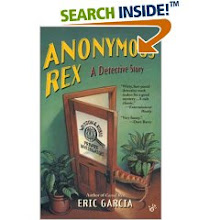
Reading Eric Garcia for Christmas
Click Here to Purchase Anonymous Rex
Vinegar Hill

Reading A. Manette Ansay for Christmas
Click Here to Purchase Vinegar Hill
Nicotine Dreams

Reading Katie Cunningham for Christmas
Click Here to Purchase Nicotine Dreams
Junot Diaz
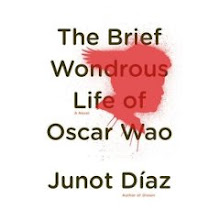
Pulitzer Prize Winner!!!
Click Here to Purchase The Brief Wondrous Life of Oscar Wao
Edwige Danticat

New Year's Reading
Click Here to Purchase Brother I"m Dying
Greed
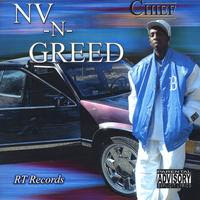
This Brother Is Scary Good
Sweet Music
One More Chance
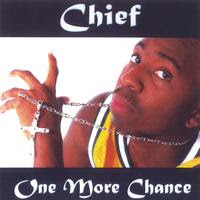
The genius Is At It Again/The Rapper CHIEF aka Sherwin Allen
Sandrine's Letter
Check out Sandrine's Letter To Tomorrow. You will like it, I insist.
Sandrine's Link
Cool Sites
- Akashic Books
- All or Nothing (My Other Blog)
- Asili The Journal
- Best Gamblling News Site
- Black Star Review
- Book Remarks
- Booktour.com
- Carolina Wren Press
- Click Here for Some Pretty Good Writing Contests
- Dedra Johnson
- Enrico Theoc
- Felicia Luna Lemus
- Florida Book Review
- Foreword Magazine
- Gambling Is Linked to Suicide
- Gambling Is Not Linked to Suicide
- Gaming Law Review
- Gene Durnell's The Thinking Journalist
- Gene Durnell's The Thinking Journalist
- Geoffrey Philp's Blog
- Get Chief's CDs on CD Baby
- Getting Past Gambling
- Gonzalo Barr's Blog
- Good Reads
- Hallema's Homepage
- Help With Gambling Addiction
- Jeremy Shipp's Website
- John Dufresne's Blog
- Leonard Nash Homepage
- Links to Seminole Casinos in Florida
- Martha Frankel's Homepage
- Michael A. Gonzales
- Miss Snark/ An Agent Gives Great Publishing Advice
- More Addiction Help
- No Gambling.com
- Pat MacEnulty
- ScrewIowa.com
- St. Louis Rams, The Greatest Show on Turf
- Suicide reference library
- T Cooper
- University of Florida
- Vicki Hendricks
- Walter Jacobs's Blog
- Writers Who Read
- Writing with Celia

All or Nothing

Editorial Reviews of All or Nothing
New York Times--". . . a cartographer of autodegradation . . . Like Dostoyevsky, Allen colorfully evokes the gambling milieu — the chained (mis)fortunes of the players, their vanities and grotesqueries, their quasi-philosophical ruminations on chance. Like Burroughs, he is a dispassionate chronicler of the addict’s daily ritual, neither glorifying nor vilifying the matter at hand."
Florida Book Review--". . . Allen examines the flaming abyss compulsive gambling burns in its victims’ guts, self-esteem and bank accounts, the desperate, myopic immediacy it incites, the self-destructive need it feeds on, the families and relationships it destroys. For with gamblers, it really is all or nothing. Usually nothing. Take it from a reviewer who’s been there. Allen is right on the money here."
Foreword Magazine--"Not shame, not assault, not even murder is enough reason to stop. Allen’s second novel, All or Nothing, is funny, relentless, haunting, and highly readable. P’s inner dialogues illuminate the grubby tragedy of addiction, and his actions speak for the train wreck that is gambling."
Library Journal--"Told without preaching or moralizing, the facts of P's life express volumes on the destructive power of gambling. This is strongly recommended and deserves a wide audience; an excellent choice for book discussion groups."—Lisa Rohrbaugh, East Palestine Memorial P.L., OH
LEXIS-NEXIS--"By day, P drives a school bus in Miami. But his vocation? He's a gambler who craves every opportunity to steal a few hours to play the numbers, the lottery, at the Indian casinos. Allen has a narrative voice as compelling as feeding the slots is to P." Betsy Willeford is a Miami-based freelance book reviewer. November 4, 2007
Publisher’s Weekly--"Allen’s dark and insightful novel depicts narrator P’s sobering descent into his gambling addiction . . . The well-written novel takes the reader on a chaotic ride as P chases, finds and loses fast, easy money. Allen (Churchboys and Other Sinners) reveals how addiction annihilates its victims and shows that winning isn’t always so different from losing."
Kirkus Review--"We gamble to gamble. We play to play. We don't play to win." Right there, P, desperado narrator of this crash-'n'-burn novella, sums up the madness. A black man in Miami, P has graduated from youthful nonchalance (a '79 Buick Electra 225) to married-with-a-kid pseudo-stability, driving a school bus in the shadow of the Biltmore. He lives large enough to afford two wide-screen TVs, but the wife wants more. Or so he rationalizes, as he hits the open-all-night Indian casinos, "controlling" his jones with a daily ATM maximum of $1,000. Low enough to rob the family piggy bank for slot-machine fodder, he sinks yet further, praying that his allergic 11-year-old eat forbidden strawberries—which will send him into a coma, from which he'll emerge with the winning formula for Cash 3 (the kid's supposedly psychic when he's sick). All street smarts and inside skinny, the book gives readers a contact high that zooms to full rush when P scores $160,000 on one lucky machine ("God is the God of Ping-ping," he exults, as the coins flood out). The loot's enough to make the small-timer turn pro, as he heads, flush, to Vegas to cash in. But in Sin City, karmic payback awaits. Swanky hookers, underworld "professors" deeply schooled in sure-fire systems to beat the house, manic trips to the CashMyCheck store for funds to fuel the ferocious need—Allen's brilliant at conveying the hothouse atmosphere of hell-bent gaming. Fun time in the Inferno.
Florida Book Review--". . . Allen examines the flaming abyss compulsive gambling burns in its victims’ guts, self-esteem and bank accounts, the desperate, myopic immediacy it incites, the self-destructive need it feeds on, the families and relationships it destroys. For with gamblers, it really is all or nothing. Usually nothing. Take it from a reviewer who’s been there. Allen is right on the money here."
Foreword Magazine--"Not shame, not assault, not even murder is enough reason to stop. Allen’s second novel, All or Nothing, is funny, relentless, haunting, and highly readable. P’s inner dialogues illuminate the grubby tragedy of addiction, and his actions speak for the train wreck that is gambling."
Library Journal--"Told without preaching or moralizing, the facts of P's life express volumes on the destructive power of gambling. This is strongly recommended and deserves a wide audience; an excellent choice for book discussion groups."—Lisa Rohrbaugh, East Palestine Memorial P.L., OH
LEXIS-NEXIS--"By day, P drives a school bus in Miami. But his vocation? He's a gambler who craves every opportunity to steal a few hours to play the numbers, the lottery, at the Indian casinos. Allen has a narrative voice as compelling as feeding the slots is to P." Betsy Willeford is a Miami-based freelance book reviewer. November 4, 2007
Publisher’s Weekly--"Allen’s dark and insightful novel depicts narrator P’s sobering descent into his gambling addiction . . . The well-written novel takes the reader on a chaotic ride as P chases, finds and loses fast, easy money. Allen (Churchboys and Other Sinners) reveals how addiction annihilates its victims and shows that winning isn’t always so different from losing."
Kirkus Review--"We gamble to gamble. We play to play. We don't play to win." Right there, P, desperado narrator of this crash-'n'-burn novella, sums up the madness. A black man in Miami, P has graduated from youthful nonchalance (a '79 Buick Electra 225) to married-with-a-kid pseudo-stability, driving a school bus in the shadow of the Biltmore. He lives large enough to afford two wide-screen TVs, but the wife wants more. Or so he rationalizes, as he hits the open-all-night Indian casinos, "controlling" his jones with a daily ATM maximum of $1,000. Low enough to rob the family piggy bank for slot-machine fodder, he sinks yet further, praying that his allergic 11-year-old eat forbidden strawberries—which will send him into a coma, from which he'll emerge with the winning formula for Cash 3 (the kid's supposedly psychic when he's sick). All street smarts and inside skinny, the book gives readers a contact high that zooms to full rush when P scores $160,000 on one lucky machine ("God is the God of Ping-ping," he exults, as the coins flood out). The loot's enough to make the small-timer turn pro, as he heads, flush, to Vegas to cash in. But in Sin City, karmic payback awaits. Swanky hookers, underworld "professors" deeply schooled in sure-fire systems to beat the house, manic trips to the CashMyCheck store for funds to fuel the ferocious need—Allen's brilliant at conveying the hothouse atmosphere of hell-bent gaming. Fun time in the Inferno.
At Books and Books
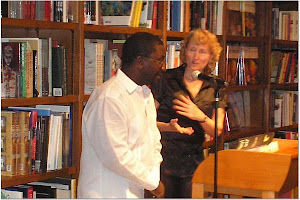
Me And Vicki at Our Reading
Bio
Preston L. Allen is the recipient of a State of Florida Individual Artist Fellowship in Literature and the Sonja H. Stone Prize in Fiction for his short story collection Churchboys and Other Sinners (Carolina Wren Press 2003). His works have appeared in numerous publications including The Seattle Review, The Crab Orchard Review, Asili, Drum Voices, and Gulfstream Magazine; and he has been anthologized in Here We Are: An Anthology of South Florida Writers, Brown Sugar: A Collection of Erotic Black Fiction, Miami Noir, and the forthcoming Las Vegas Noir. His fourth novel, All Or Nothing, chronicles the life of a small-time gambler who finally hits it big. Preston Allen teaches English and Creative Writing in Miami, Florida.